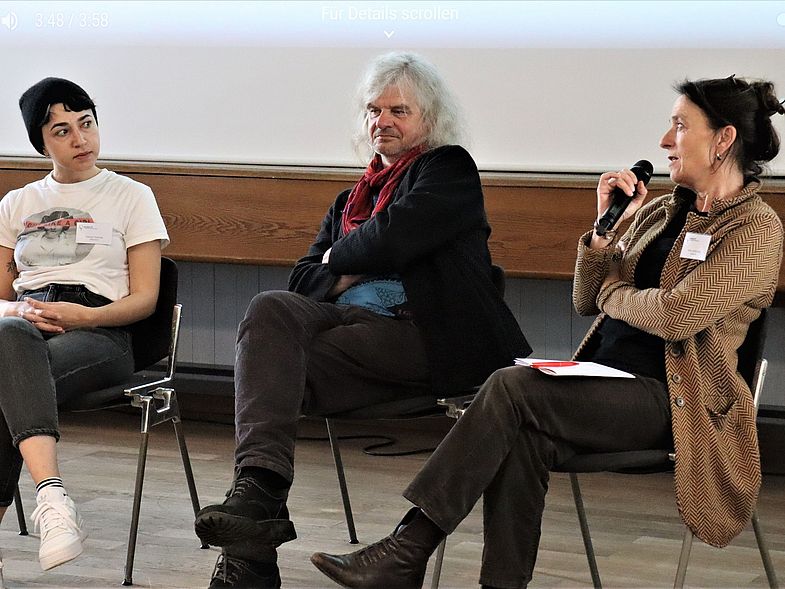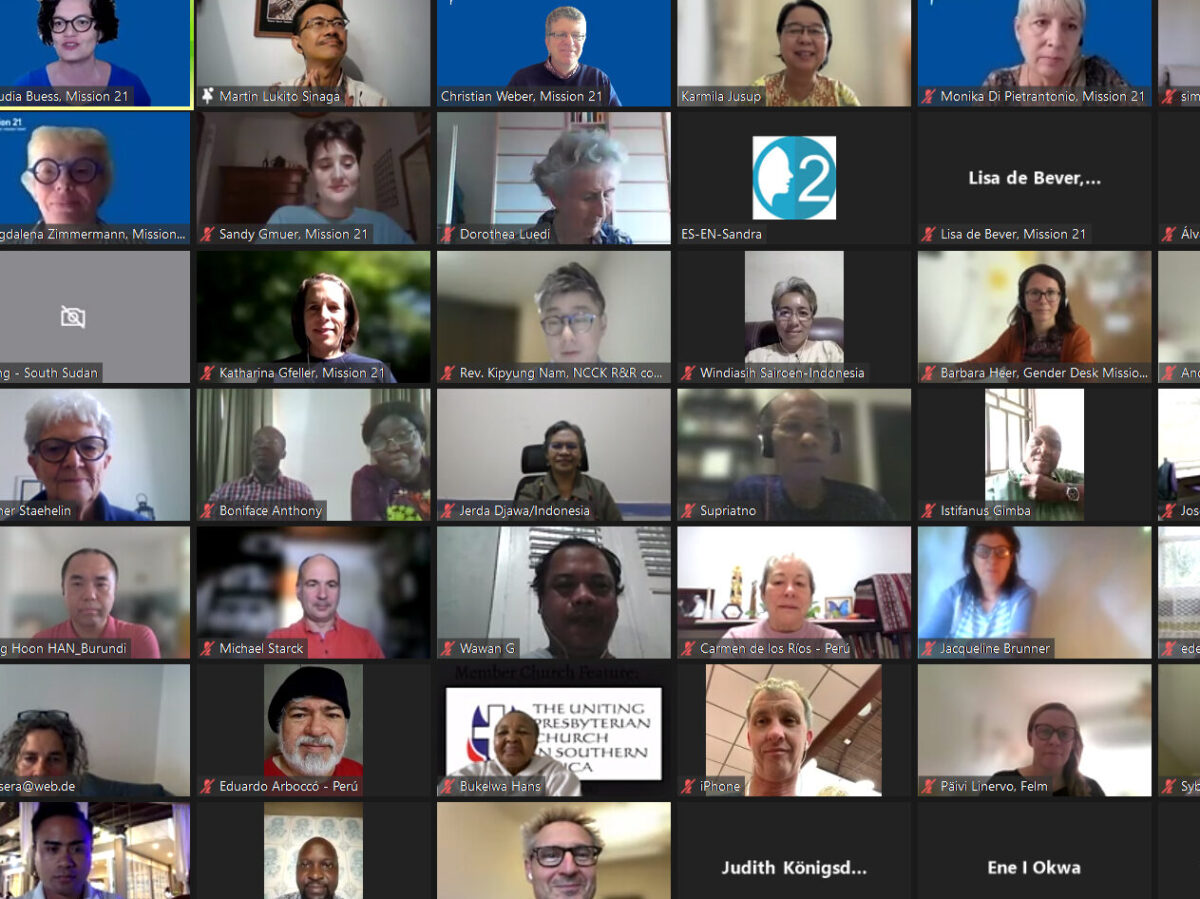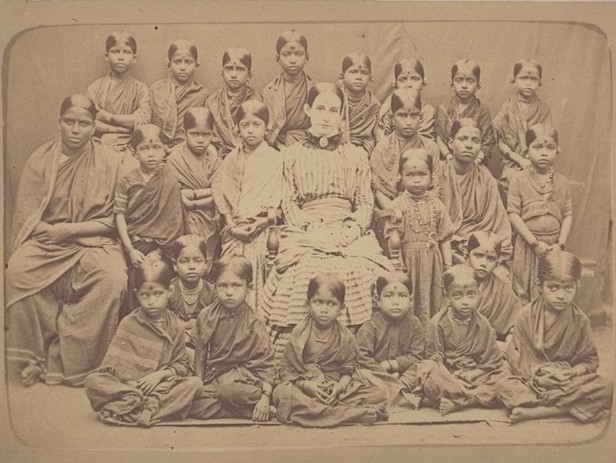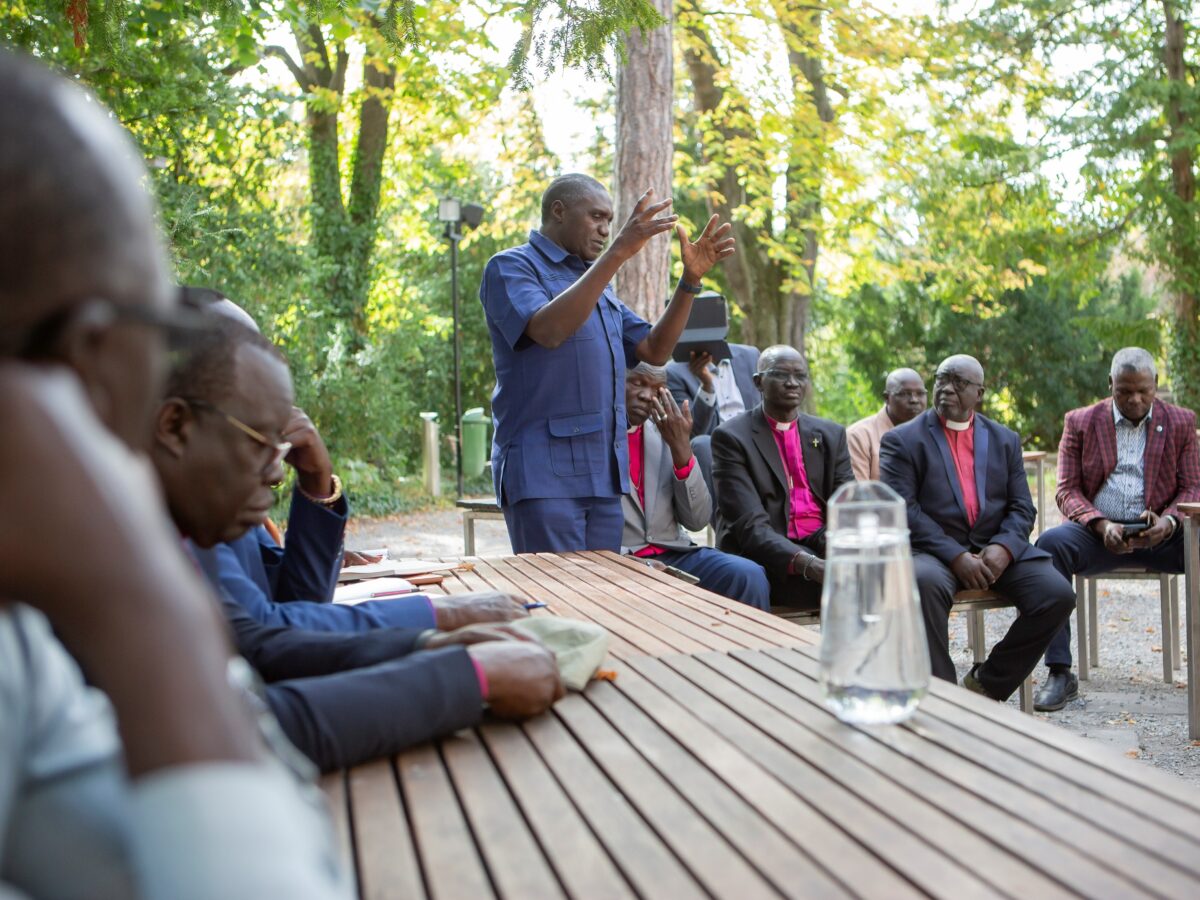As a prelude to the symposium, moderator Claudia Buess from Mission 21 illustrated with a highly topical example that works of art can set striking signs of peace. In a night action, a 70-member artists' collective placed a Rahmedetal Bridge in Germany, the approximately 300-meter-long call for peace to build bridges - in response to the war of aggression that Russia is waging in Ukraine.
In her welcoming address, education director Magdalena Zimmermann from Mission 21 called for solidarity in this war. The frightening attack on Ukraine also makes it clear that our values such as democracy cannot be taken for granted. And she pointed out that there are also forgotten conflicts, wars that hardly make the headlines anymore. Mission 21 is mostly active in such contexts, said Magdalena Zimmermann: "Interfaith peacebuilding in these countries, as well as in Switzerland, has therefore long been a focus of Mission 21." One instrument of this peacebuilding is art, and peaceart can contribute to a peaceful, just and inclusive world.
Theater strengthens resources and overcomes trauma
The theater maker and lecturer Anina Jendreyko impressively demonstrated in her first presentation that art can build bridges between different cultures and create understanding. Through her activities in Switzerland, Turkey and Iraq, she has gained experience in different contexts.
The basis of her successful cross-cultural theater work was a project at a school in Kleinbasel. The theater work with students from a wide variety of backgrounds gave rise to the Volksbühne Basel, of which Jendreyko is still the director today. This intercultural theater work functions in that the participants are not there as "actor-objects" but as subjects: As people who deal critically and constructively with origin, situation, power or victimhood.
With this approach, Anina Jendreyko went to northern Iraq and developed a theater play with Yazidi women who were able to flee the area occupied by the so-called Islamic State, IS. In "Shengal - the power of women", women and men from the Shengal region tell how they are beginning to build a new model of society. The play shows how people, in coming to terms with their identity, through self-empowerment and in the struggle for gender justice, sustainably realize the vision of a more just society.
Images can empower and strengthen
After this moving presentation, Professor Volker Küster from Mainz had the difficult task of captivating the symposium participants with the interpretation of images. He first introduced the theoretical basics, explained how art can be a means of protest and resistance, and how it can enable trauma processing and reconciliation. Art can lead to awareness-raising for viewers, can trigger empathy, and can empower and strengthen them.
He illustrated this with various works of art, also with Christian motifs. Among others, with a painting by the painter Donatus Moyen from Papua, who reacted to the Indonesian occupation of his country with large-scale motifs conveying hope.
Change of perspective and poetry as an opportunity
In the third presentation, Hannan Salamat, a cultural and religious studies scholar in Zurich and Munich, introduced the history of the "AusARTen" festival, which she has co-organized in a mosque in Munich since 2016. "A plural society needs a plural view into the past, into the present and into the future" - with this principle, the festival brings the most diverse perspectives onto the stage.
These presentations are both an opportunity and a challenge. In principle, it works in a mosque, because poetry is at the heart of Islamic art. However, it also takes courage on the part of Christians to present their own cultural ideas in these spaces.
For Salamat, the pandemic makes it clear that the spiritual side is important, that art and culture can bring about peace. Jewish, Christian and Muslim events in the "other" places of worship could promote a sense of community and openness to other points of view.
Workshops open horizons
The afternoon offered the opportunity to dive into concrete examples of how to broaden access to art and culture in order to learn from other cultures and better recognize our own position in four different workshops.
The workshops offered different approaches. The theater maker Kapi Kapinga Grab worked out with the participants ways of recognizing and leaving behind learned patterns of thinking when looking at art. Museum educator Sabine Rotach explored the possibilities of using objects from the Museum of Cultures to ask questions about these cultures and one's own culture.
Leila Semaan, a trainer for conflict transformation among other things, took up the experiences of the participants to look more deeply at the ways in which artistic interventions are suitable for use in peace work. And Christian Weber, director of studies at Mission 21, presented works of art from various contexts that interpret biblical texts and made visible how a dialogue between cultures becomes possible.
The concluding discussion showed how this conference opened up new possibilities for the participants. Moderator Claudia Buess: "Artistic creation is a way to solve conflicts, which we are not used to in Western culture." The approximately 30 participants took the opportunity at this conference to actively take steps out of this "habit".
Text: Séverine Fischer and Christoph Rácz
Photo: Séverine Fischer
► Mission 21 peacebuilding projects
► Video of the art action on the Rahmedetal bridge
► Homepage of the theater project "Shengal - the power of women".






